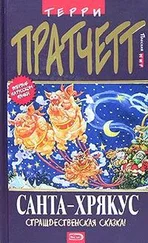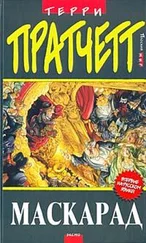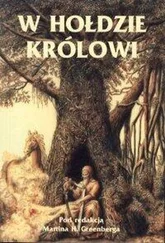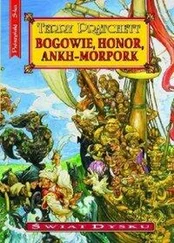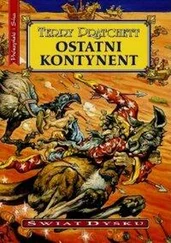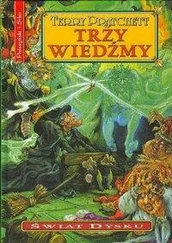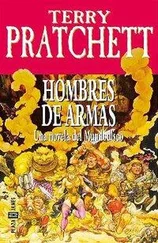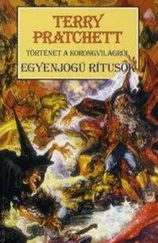He stared at them.
He was alone. No one else could be here, not now. Not to leave him food and creep away.
He looked down at the sand. There were footprints there, not large, but they had no toes.
He stood up very carefully and looked around. The creature with no toes was watching him, he was sure. Perhaps… perhaps the Grandfathers had sent it?
“Thank you,” he said to the empty air.
The Grandfathers had spoken to him. He thought about this as he gnawed the mango off its huge stone. He’d never heard them before. But the things they wanted… how could a boy do them? Boys couldn’t even go near their cave. It was a strict rule.
But boys did, though. Mau had been eight when he’d tagged along after some of the older boys. They hadn’t seen him as he’d shadowed them all the way up through the high forests to the meadows where you could see to the edge of the world. The grandfather birds nested up there, which was why they were called grandfather birds. The older boys had told him that the birds were spies for the Grandfathers and would swoop on you and peck your eyes out if you came too close, which he knew wasn’t true, because he’d watched them and knew that — unless there was beer around — they wouldn’t attack anything bigger than a mouse if they thought it might fight back. But some people would tell you anything if they thought you’d be scared.
At the end of the meadows was the Cave of the Grandfathers, high up in the wind and the sunlight, watching over the whole world. They lived behind a round stone door that took ten men to shift, and you might live for a hundred years and see it moved only a few times, because only the best men, the greatest hunters and warriors, became Grandfathers when they died.
On the day he had followed the boys, Mau had sat and watched from the thick foliage of a grass tree as they dared one another to go near the stone, to touch it, to give it a little push — and then someone had shouted that he’d heard something, and within seconds they’d vanished into the trees, running for home. Mau had waited a little while, and when nothing happened, he had climbed down and gone and listened at the stone. He had heard a faint crackling right on the edge of hearing, but then a grandfather bird on the cliff above was throwing up (the ugly-looking things didn’t just eat everything, they ate all of everything, and carefully threw up anything that didn’t fit, taste right, or had woken up and started to protest). There was nothing very scary at all. No one had ever heard of the Grandfathers coming out. The stone was there for a reason. It was heavy for a reason. He forgot about the sound; it had probably been insects in the grass.
That night, back in the boys’ hut, the older boys boasted to the younger boys about how they had rolled away the big stone and how the Grandfathers had turned their ancient, dry old faces to look at them, and tried to stand up on their crumbling legs, and how the boys had (very bravely) rolled the big stone back again, just in time.
And Mau had lain in his corner and wondered how many times this story had been told over the last hundreds of years, to make big boys feel brave and little boys have nightmares and wet themselves.
Now, five years later, he sat and turned over in his hands the gray round thing that had acted as a holder for the mango. It looked like metal, but who had so much metal that they could waste it on something to hold food?
There were marks on it. They spelled out Sweet Judy in faded white paint — but they spelled out Sweet Judy in vain.
Mau was good at reading important things. He could read the sea, the weather, the tracks of animals, tattoos, and the night sky. There was nothing for him to read in lines of cracked paint. Anyone could read wet sand, though. A toeless creature had come out of the low forest and had gone back the same way.
At some time in the past something had split the rock of the island, leaving a long low valley on the east side that was not very far above sea level and had hardly any soil. Things had soon taken root even so, because something will always grow somewhere.
The low forest was always hot, damp, and salty, with the sticky, itchy, steamy atmosphere of a place that never sees much new air. Mau had forced his way in a few times, but there wasn’t much of interest, at least not at ground level. Everything happened high above, up in the canopy. There were wild figs up there. Only the birds could get at them, and they fought over the little morsels, which meant there was a steady rain of bird poo and half-eaten figs onto the forest floor, which in turn was a permanent feast for the little red crabs that scuttled around and cleared up anything that dropped in. Sometimes pigs came down to feed on the crabs, so the low forest was worth an occasional look. You had to be careful, though, because you often got a tree-climbing octopus or two in there, after baby birds and anything else they could find, and they were hard to pull off if they landed on your head. Mau knew that you must never let them think you are a coconut. You learned that fast, because they had sharp beaks.[! The tree-climbing octopus (Octopus arbori) is found on the Island Where the Sun Is Born, in the Mothering Sunday Islands. They are extremely intelligent, and cunning thieves.!]
Now he came around the huge broken rocks that stood at the entrance to the valley and stopped.
Something much bigger than a bird plop or a pig had hit the forest. It couldn’t have been just the wave. Some enormous thing had charged through, leaving a line of smashed trees into the distance.
And not just trees; it had left treasure behind. Rocks! Gray round ones, brown ones, black ones… good hard rocks had a lot of uses here, where the mountain rock was too crumbly to make decent weapons.
But Mau resisted the temptation to collect them now, because rocks don’t go anywhere and, besides, there was the dead man. He lay by the track, as if the creature had tossed him aside, and he was covered in little red crabs whose big day had come.
Mau had never seen a man like this before, but he’d heard of them — of the pale people in the north who wrapped their legs in cloth so they looked like a grandfather bird. They were called the trousermen, and were as pale as ghosts. This one didn’t worry him, not after the memory of yesterday, which screamed all the time behind a door in his head. This was just a dead man. He didn’t know him. People died.
Mau didn’t know what to do with him either, especially since the crabs did. Under his breath he said: “Grandfathers, what shall I do with the trouserman?”
There was a sound like the forest drawing its breath, and the Grandfathers said: HE IS NOT IMPORTANT! ONLY THE NATION IS IMPORTANT!
This was not a lot of help, so Mau dragged the man off the broken track and into a deeper part of the forest, with an army of little crabs following in a very determined way. They’d had years of fig seeds and bird plop. They’d put up with this like good little crabs, they seemed to say, but now it was time for their perfect world.
There was another trouserman farther along the trail, also dropped by the creature. Mau didn’t think about it at all this time, but just dragged him into the tangle of undergrowth, too. It was the best he could do. He had walked too much in the footsteps of Locaha lately. Perhaps the crabs would take the soul of the man back to the trouserman world, but here and now Mau had other things to think about.
Something had come out of the sea on the wave, he thought. Something big. Bigger than a sailfin crocodile,[!The sailfin crocodile (Crocodylus porosus maritimus) is still found in all parts of the Pelagic. It travels immense distances on the surface by means of a large skin-and-cartilage “sail” that it can, to some extent, steer.!] bigger than a war canoe, bigger even than… a whale? Yes, that could be it, a big whale. Why not? The wave had hurled big rocks beyond the village, so a whale wouldn’t stand a chance. Yes, a whale, that would be it, thrashing around in the forest with its big tail and slowly dying under its own weight. Or one of the really big sea squids, or a very big shark.
Читать дальше

